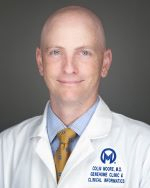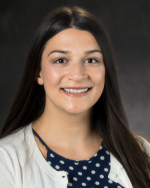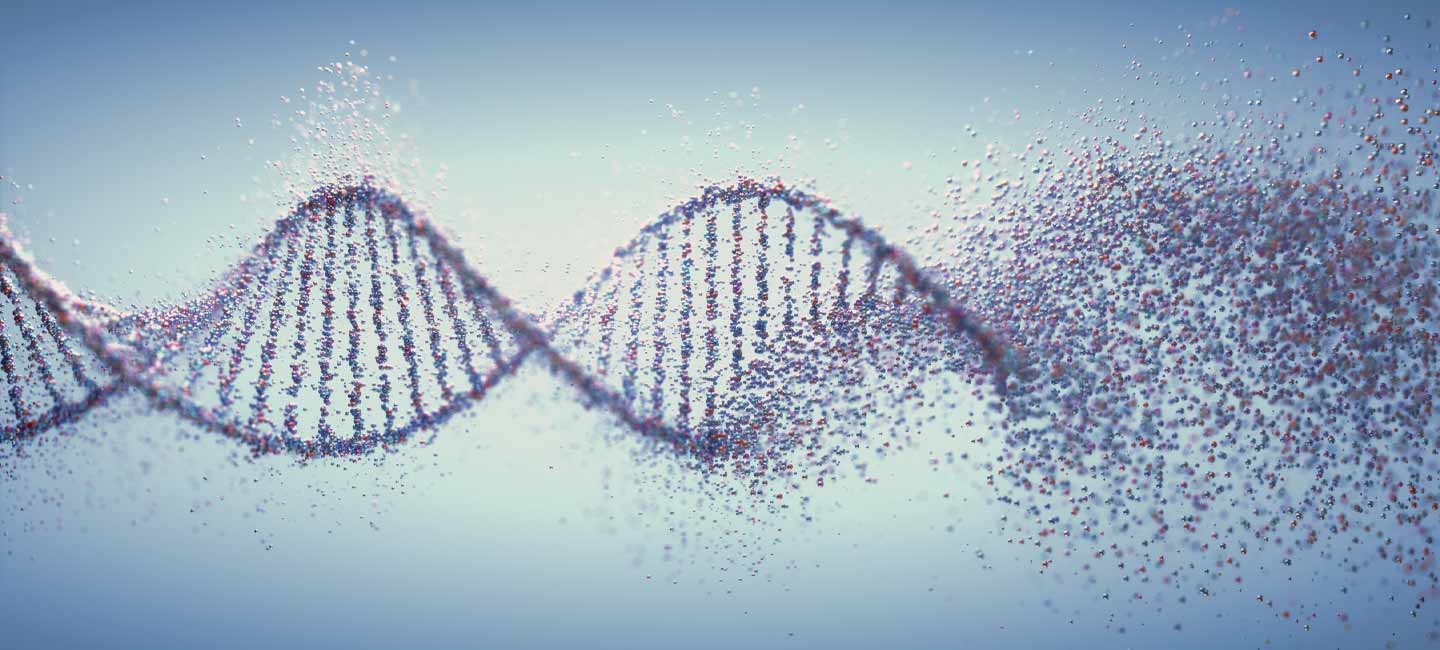Moffitt’s GeneHome Clinic Offers Treatment Options for Younger Patient Population
Moffitt Cancer Center’s GeneHome Clinic has expanded to provide multidisciplinary care for children, adolescents and young adults with genetic risk factors for cancer.

Dr. Colin Moore
Dr. Colin Moore is a pediatric oncologist who joined Moffitt from Johns Hopkins All Children’s Hospital to help expand the GeneHome Clinic to serve our younger patient population. The GeneHome Clinic works with the Adolescent and Young Adult (AYA) Program to provide long term medical management and surveillance recommendations to patients with a known or suspected hereditary cancer predisposition syndrome. While the AYA patient designation is typically reserved for the 15-39 age group, the GeneHome Clinic will treat patients from infancy. Examples of childhood conditions that can increase cancer risk and will be managed in this clinic include Li Fraumeni Syndrome, Familial Adenomatous Polyposis, Von Hippel Lindau, Multiple Endocrine Neoplasia type 2, amongst many others.

Sarah Burke, MS, CGC
The multidisciplinary nature of the clinic stems from the addition of board-certified genetic counselors that provide genetic counseling alongside the medical oncology services. The clinic is the first of its kind in Florida to combine access of both services to patients. Families affected with rare disease may have difficulty finding support and providers knowledgeable about their condition or may have to travel long distances to receive care. There are many centers that provide similar services to adults, but few for children and adolescents. The new clinic aims to reduce these barriers and provide high-quality care.
The GeneHome Clinic provides:
- Genetic risk assessment and clinical evaluation
- Access to clinical-grade genetic testing
- Expert recommendations for medical care to manage cancer risks
- Referrals to cancer specialists
- Psychosocial support for families
Although services for the AYA population are a recent addition, the Moffitt GeneHome Clinic has long been providing similar services to adults affected with hereditary cancer.
This article was written by Sarah Burke, MS, a Certified Genetic Counselor at Moffitt Cancer Center.



